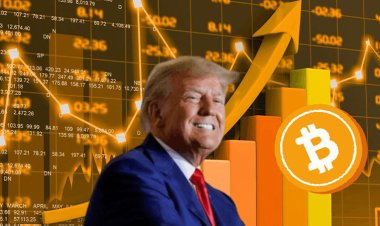U.S. Considers Strategic Bitcoin Reserve: Insights from Michael Saylor
The United States is reportedly considering the creation of a Crypto Strategic Reserve, with Bitcoin as the primary asset...

Washington, D.C. – The United States is reportedly considering the creation of a Crypto Strategic Reserve, with Bitcoin as the primary asset, according to insights shared by MicroStrategy co-founder and executive chairman Michael Saylor during an interview on Fox Business.
The discussion comes ahead of a crypto summit at the White House, where policymakers and industry leaders will deliberate on the nation's approach to digital assets. Saylor, whose company holds approximately 500,000 Bitcoin—equating to around 2.4% of the global supply—highlighted the increasing institutional and governmental interest in Bitcoin as a foundational digital asset.
Bitcoin in U.S. Strategic Reserves?
Saylor revealed that the U.S. government currently holds around 200,000 Bitcoin, valued at approximately $7 billion at current market prices. He referenced the Lummis Bill, which suggests that the U.S. could gradually acquire one million Bitcoin over a four-year period. The goal would be to accumulate digital assets in a methodical, transparent, and structured manner to bolster national financial stability.
“The most responsible thing would be to go slow and steady, with clear telegraphing and transparency,” Saylor said, adding that Bitcoin should be seen as digital property that helps individuals and nations preserve wealth over time.
The Role of Altcoins and Digital Asset Regulation
While Bitcoin remains the dominant digital commodity, the summit may also touch upon other cryptocurrencies, such as Ethereum (ETH), Ripple (XRP), Solana (SOL), and Cardano (ADA). However, Saylor argued that Bitcoin alone should be the core component of any strategic reserve, given that it is the only asset without a central issuer.
Saylor emphasized the importance of clear regulatory definitions for digital assets, distinguishing between currencies, commodities, securities, and utility tokens. He suggested that while assets like stablecoins and tokenized securities play critical roles in digital finance, Bitcoin’s decentralized nature makes it the most suitable reserve asset.
A Digital Future for the U.S. Economy
When questioned about the necessity of a crypto reserve, Saylor compared Bitcoin to historical U.S. land acquisitions, such as the Louisiana Purchase and the acquisition of Alaska. He described Bitcoin as cyberspace real estate, predicting that global wealth will continue shifting from physical assets to digital property.
“The U.S. has an opportunity to plant its flag in cyberspace before foreign governments, corporations, and artificial intelligence entities claim dominance,” Saylor asserted.
Government Involvement: A Double-Edged Sword?
Bitcoin was originally designed as a decentralized financial instrument, free from government control. However, with the U.S. government showing increased interest, some early adopters may be wary of regulatory intervention.
Saylor reassured skeptics by suggesting that governmental adoption is a natural evolution, similar to how individuals and corporations have integrated Bitcoin into their financial strategies.
Final Takeaways from the Upcoming Summit
As policymakers gather for the White House Crypto Summit, the future of Bitcoin in national reserves remains uncertain. However, if the U.S. moves forward with a strategic acquisition plan, it could signal a major shift in global financial policy, positioning the country as a leader in digital asset adoption.
“The number one priority should be regulatory clarity,” Saylor advised. “If the U.S. wants to embrace digital assets, it must define a structured framework and approach Bitcoin acquisition deliberately and transparently.”
The outcome of the summit could have significant implications for the cryptocurrency market, influencing adoption, regulation, and investment strategies worldwide.






















